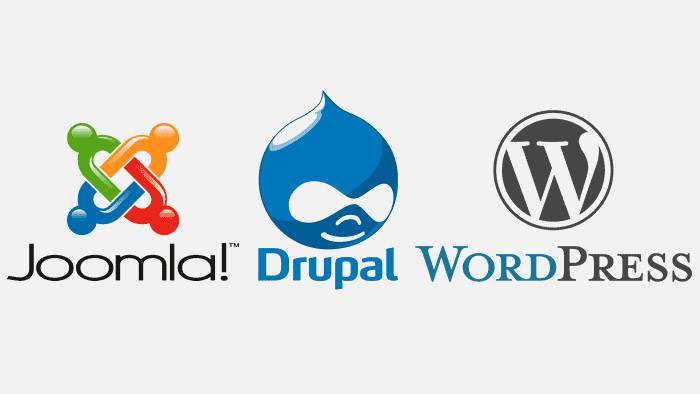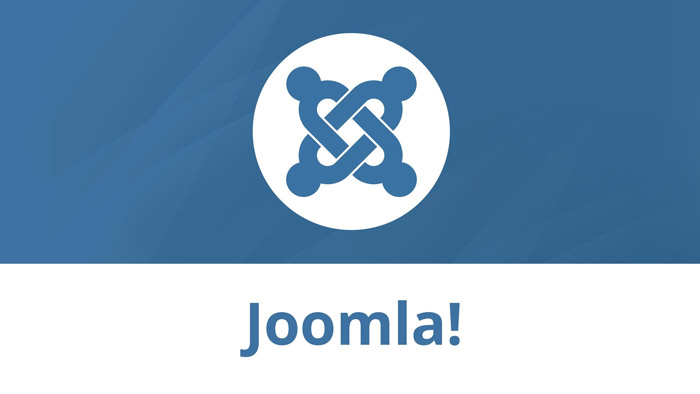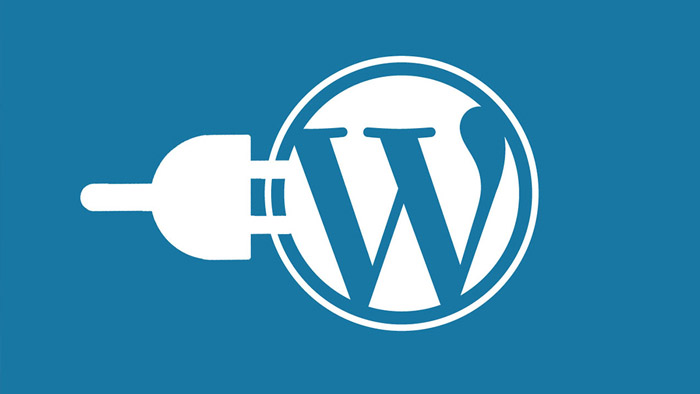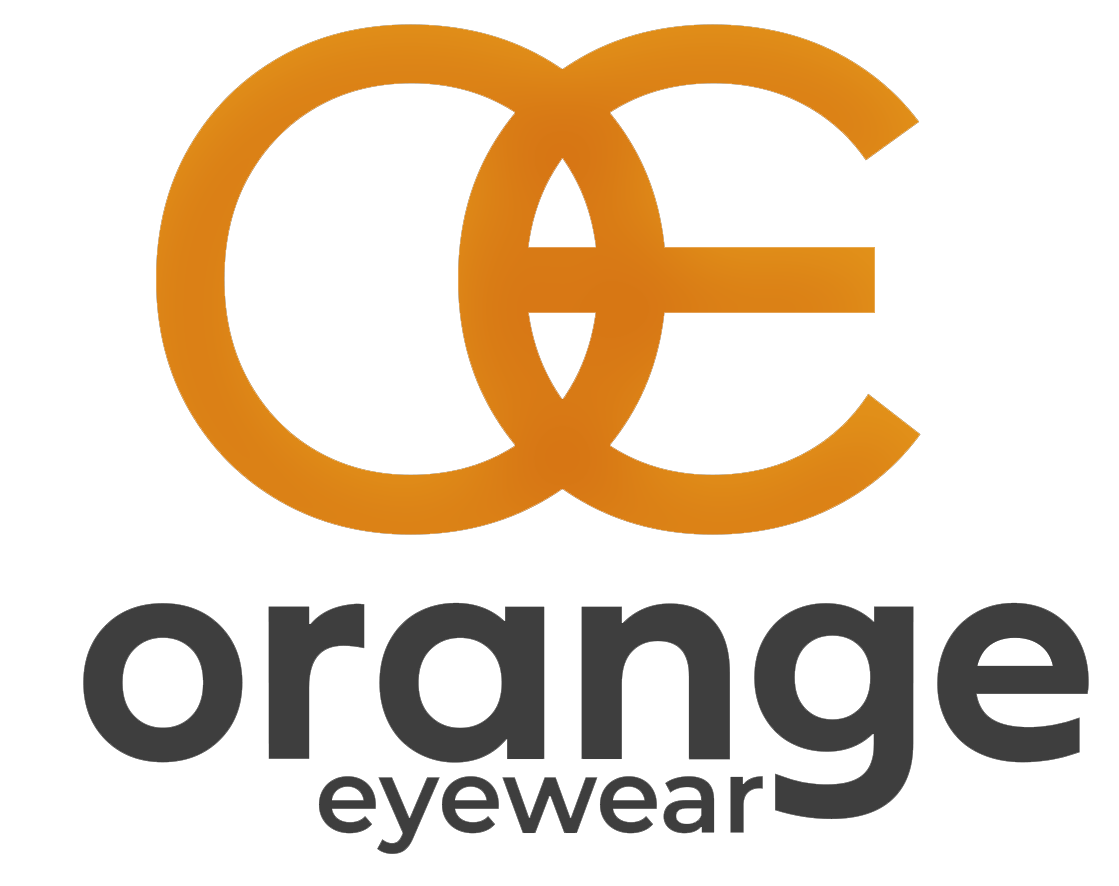
In this competitive online world, there are countless Content Management Systems. All of them have many advantages and disadvantages. Of the many CMSs available today, only three have managed to stamp authority in the field of content management. This has made them enjoy a considerable following and allowed a substantial number websites to be made using their CMS. Developers are usually devoted to only one of these cms and are usually a memeber of that CMS's community. If you are in the process of choosing a CMS, the three we recommend are Drupal, Joomla, or Wordpress.
Choosing which to go with can be a challenge. For the most part though none stand above the other in terms of which type of CMS should be used for a certain type of site. We often get told by clients that they were told by a company or programmer the website they want built definitely has to be done in one of the three CMS platforms. That one of the three is light years better than the other two. The fact of the matter is that most companies and programmers specialize in one of these three CMSs. So they usually are recommending what they are experts in, not giving you an unbiased recommendation.
We are experts in all three and again none of the three are light years better than the other two. We are actually experts in other CMSs too, but these 3 are really the only types we have been asked to make the past few years. You really can build any type of website in any of the three and have few if any negative effects from choosing that CMS over the other two. There were times when you didn't want to build a membership site in Joomla and Drupal was the optimal choose for those type sites. And there were times where Joomla was the top CMS to go with. Now a days they all have fixed most of the flaws that made choosing their CMS not the optimal choose.
This article will talk about the pros and cons, but it again can't be stated enough that they all are capable of running any type of site. Before going into that you should know the main reason to make a site using an open source cms like one of the for mentioned three over making a custom coded site is that you can easily find an expert in one of three if things go wrong with the person making your site. If you had a Joomla site made and things didn't work out with the programmer you can simply find another Joomla expert to take over. With custom coded sites the programmer makes the site anyway that is easiest for them. They code in the language and style they can work easiest with. The problem is if things don't work out you could potentially be left with a site only that programmer really knows how to work with and code.
Joomla

In some ways this content management system is less user friendly when it comes to administration, configurations, and installation. Joomla has mainly been designed for purposes of managing content of giant websites with many pages. In comparison to the other two, Joomla has been said to be better at managing websites with complex content. With Joomla, you can set up a complex website and have it running in less than a few hours if not less than an hour.
Pros
- Easy to administer once you learn the backend basics.
- Easy to add common and popular features.
- Easy to install.
- Has by the far the most plug-ins available.
- More difficult to make responsive, though Joomla has improved upon this.
Cons
- Hard to customize functionally and add custom features for developers with only a few years of experience using Joomla and extremely hard for nonprogrammers.
- Joomla lacks easily downloadable themes. Users have to search extensively for themes outside the site. Good companies usually make designs from scratch so it's not usually an issue with more experienced companies, but for a consumer who wants to build a Joomla site themselves they may find this to be an issue
- 90% of the backend of Joomla is never used. It can be very overwhelming to users. A quick glance at the backend of Joomla can easily scare away any customer. Really only 10% of the backend is used. Joomla has packed everything in the backend you'd ever need. The problem of course is that you rarely ever need, again, 90% of what they've packed in the backend. The admin is great for developers, but Joomla's vast amount of admin features make joomla look more complex to a everyday user then it really is.
- New themes which need to replace older themes must be compatible with the content on the site. They must also support the content in order to work.
Wordpress

"Wordpress is only for blogs." Or that is what many of our clients tell us. It's actually made for blogs, but they have an amazing CMS made for websites. This is not to be confused with the make it yourself website "tool" they also have available. The blog and that "tool" are something completely different. When a client tells us they don't want to use Wordpress the overwhelming reason why is "They don't want a blog looking site." It's a misconception. With any of these CMSs, or any CMSs in general, you can make a site look like anyway you want. There are no limitations.. What makes Wordpress great is they made the admin look and work as user friendly as possible. It's easy to work with for developers and consumers.
Pros
- Easy to administer.
- Easy to install.
- Easy to add common and popular features.
- Easy to look for numerous themes and template designs for nontechnical consumers wanting to build their own site.
- Wordpress is responsive right out of the box.
- Hundreds if not thousands of Wordpress templates. This is an advantage for nontechnical consumers wanting to build their own site.
Cons
- It can be complex when it comes to customizing functionality and adding custom features for non-technical users. Unlike Joomla and Drupal you can really add plugins without the help of a programmer. BUT customizing these plug-ins is harder to do though for many developers. Since Wordpress is made for the everyday user to create their own site they make plug-ins that are consumer friendly not developer friendly.
- Removing some features is difficult.
- The main con with Wordpress is that it is the CMS choose of programmers with little design skill. So they usually use a template to make a site for a client. While Joomla and Drupal, most programmers atleast, make the design and put it into Joomla or Drupal. Many programmers with Wordpress modify a template.
Drupal

When it comes to Drupal, it is worth admitting that administration is indeed complex. If you are a non-technical person, this platform may not be for you. However, Drupal can be considered by some to be the best CMS in regards to adding custom features, customizing or changing a feature and customizing brand and design. With any CMS it's just about learning the backend. A good company usually will give an easy to understand, backend tutorial guide to all their clients at the end of projects. It explains the backend, where to go to change elements on the frontend, etc. You do indeed need to be a programmer to do customization of features with Drupal. This acts as one of the main drawbacks of Drupal. Another downfall you could say is it really requires the programmer to actually do programming. There's less plug-ins like Joomla to just implement, and less templates like with Wordpress to help programmers with little to no design skill. So it means the programmer has to really do actual programming to complete some of the functions of sites.
Plug-ins have been mentioned a few times in this article. There is a misconception on about them. Using plug-ins is fine, that's the main reason a developer would make a site in a CMS instead making it custom. What happens though is programmers use plug-ins but don't know how to modify the plug-ins. So they tell the client "sorry this plug-in does only some of the functions you want you can't have the other features you want." This is why plug-ins got a bad name and has resulted in clients not wanting to use plug-ins for their sites.
You use plug-ins as a base. If it doesn't do all the functions a client wants, the programmer should modify the plug-in. So say a plug-in does 70% of what a client needs it to do, for that feature, then that's 70% that the programmer doesn't have to program from scratch It's useable code and the basis of open source platforms. It's perfectly fine to use plug-ins, it's not fine to use them when working with a programmer who doesn't know how to modify plug-ins to do 100% of the functionality a client needs.
With that mentioned all go into the pros and cons of Drupal. Drupal is not the optimal choose for consumers trying to build the site themselves or novice programmers.
Pros
- Excellent for adding custom features.
- Excellent for customizing its design and branding.
- More experienced programmers know Drupal, so you are more likely to get a website that does exactly what you want, without sacrificing any functionality.
Cons
- Complex to install, customize, and configure for a build-your-site-yourself consumer or novice programmers.
- Very few themes available for Drupal.
- Code tends to be difficult to manage when it comes to customization unless you've worked with Drupal extensively.
- More difficult to make responsive, though, like Joomla, they have improved upon this since mid 2013.
- Can be more costly to build.
- Takes more time to build Drupal sites.
So all 3 CMSs are equal in terms building any type of site. If you want to build the site yourself and don't have much technical knowledge Wordpress is the way to go. If you want a site done by a programmer and YOU understand plug-ins, then Joomla is the way to go. If you want a site that has 100% of the functions you require, and are willing to spend a little more, and wait a little longer for it to be built Drupal is the way to go.
About the Author
Mike Gill is the owner of VBE Computing and has run the IT business for 13 years. Mike admits the first thing that goes programming and owning a company for 13 years isn't your hair or sanity, but the college level English grammar basics taught many years back in school.
Mariam Tanveer is copywriter, skilled seo expert, and article and colulmn writer/editor.















Post Your Comment
Comments